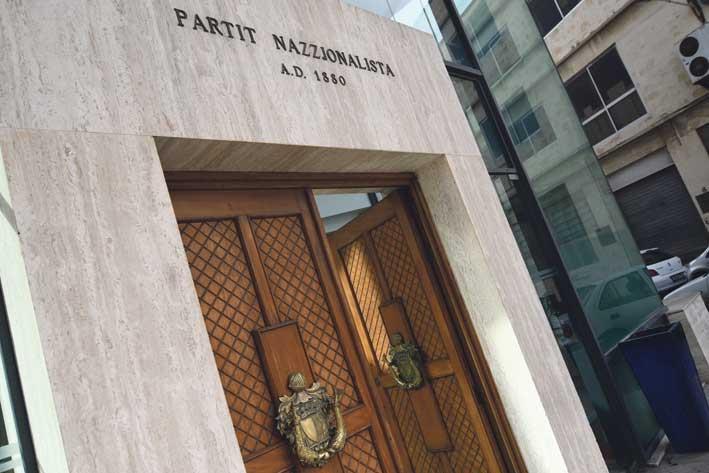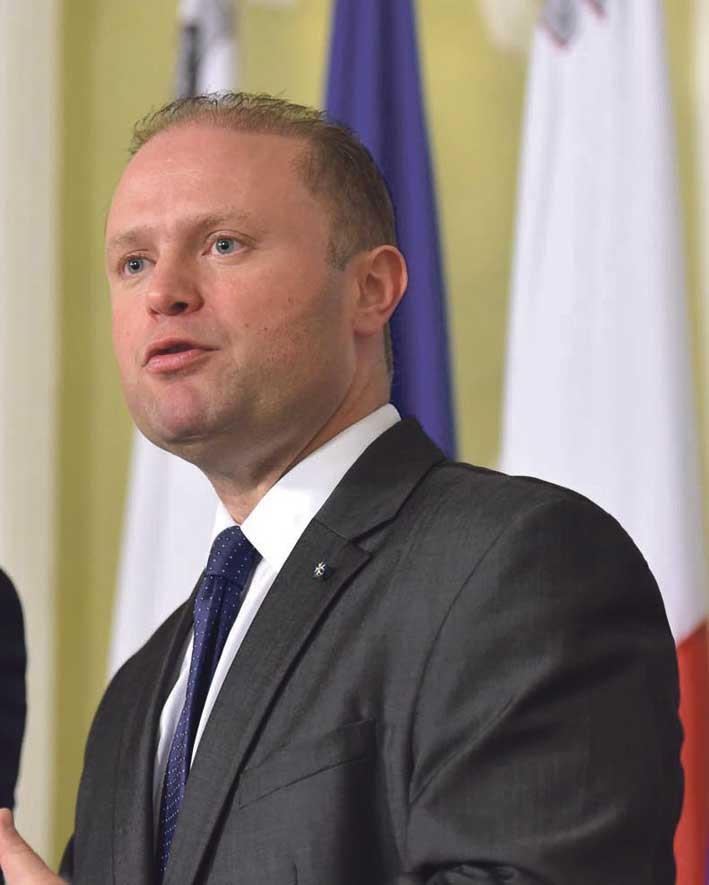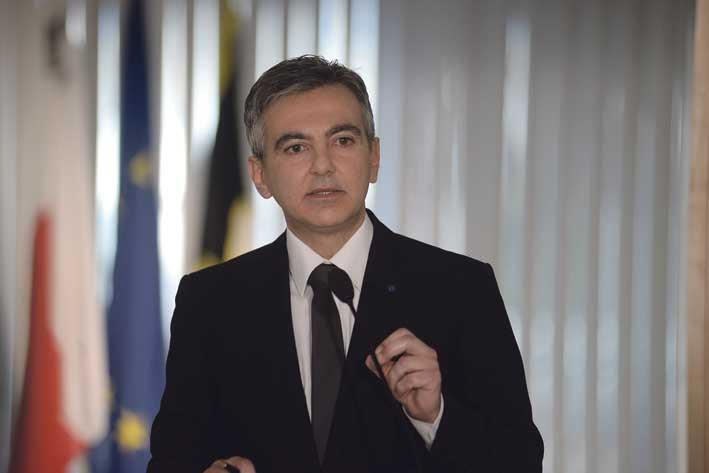Accusations of non-existent services rendered by the Opposition’s commercial entity Media Link to Silvio Debono’s db Group in order to circumvent party financing laws on donations could just be the tip of the iceberg.
The party financing law, proposed and enacted by the current government, stipulates that no party is allowed to receive donations by the same person/entity exceeding €25,000 in any given financial year. Party financing laws, especially when regulating a jurisdiction whose political parties survive purely on donations, are of extreme importance.
Large donations by big business run the extremely probable risk of influencing the decision-making process of a political party, more dangerously so if that party is in government and, on a more brazen level, could translate into donations-for-public-tenders.

Mainstream parties and big business
Both the Labour Party (PL) and the Nationalist Party (PN) have been accused of being in bed with big business. As regards the PN that were in power for 25 years (bar a stint of two years by Alfred Sant’s MLP), and traditionally identify with a centre-right ideology, have been known to be the more business-friendly party.
After the 2013 general election, the PL is now overwhelmingly seen to be the more business-friendly party. Confessions by former PL Deputy Leader Anġlu Farrugia shed light on big business seen participating in meetings on the infamous fourth floor of the Mile End fortress. This was in contrast to what happened in the past when people in big business felt uncomfortable being seen entering PL headquarters let alone inviting PL’s top brass on yachts or throwing parties for them in luxury hotels which were built under PN administrations, some of which used to be shacks or simply virgin shorelines.

Prime Minister Joseph Muscat proudly said that he is Malta’s salesman and the rigorous measures adopted in order to mitigate unemployment, attract investment and push the economy meant that the PL was proud to be the new all-for-business, business-for-all party.
Generations of people have been scratching their heads as political parties are expected, in principle, not to be more sympathetic to big business, when the latter, by and large, has managed to keep the former afloat, relevant, and ensure that its workers get paid. The latest db Group/PN saga made certain people revisit the idea of state funding the political parties, similar to the German model, in order to avoid businesses being the invisible puppet masters of parties. PN leader Simon Busuttil may shout at the top of his voice that no business deal will tarnish his clean record of honest politics, but the bottom line is that the PN, just like the PL, keeps crawling to big business to help it fund its operations.

Can the party financing law really clean up the incestuous relationship between mainstream parties and big business?
The accusations about the PN are shocking because while everybody complains about the grip big business has on decision-making processes in Malta, the public was confronted with how this could happen in reality.
The party financing law does not allow for state funding the parties, which seems to be the logical step. How many more big-business entities could be having a similar agreement with the Opposition, or have had similar dubious arrangements with the PL when negotiating pre-electoral promises? The green light granted by MEPA for the Gaffarena petrol station, which is in breach of several planning laws, to open its doors and conduct business after it had been shut down for years under the Gonzi administration may be a clear example of the relationship between the PL and the Gaffarenas prior to the 2013 election.
Are the Maltese ready to pay their taxes to fund political parties, in order for big business to loosen its grip? Is the cost of corrupt decision-making higher than the cost of funding mainstream parties ourselves? Would the state funding of political parties ease the influence of big business?

PN and good governance
The PN’s report on good governance, published in December 2015, dedicates only half a page to party financing. It applauds the government for proposing and ultimately enacting the party financing law, and even acknowledges its own failure to enact a similar law during the 25 years it was in power.
While the Opposition put forward meaningful suggestions and concerns regarding the law, some taken on board while others were dismissed, its entire section dedicated to what the PN would do should it be in power exclusively relate to the issue of “the Labour Party possess[ing] several public properties that had been taken over by the party for its use”.
In the wake of the saga revolving around db Group, whose chairman is Silvio Debono of the Seabank and San Antonio hotels, two main issues were exposed: that while MPs work part time, issues of conflicts of interest, impartiality and acting in the interest of the country is called into question. The second exposes the way Malta’s system works whereby political parties can only survive on donations, which means that the de facto rulers of Malta are the big businessmen with deep pockets.
Like a bolt out of the blue, db Group asked the PN to return donations after the Leader of the Opposition chose to refer to the contract between db and the government over the transfer of former Institute of Tourism Studies land at St George’s Bay by the latter to the former, to the Auditor General. The Opposition took umbrage with the valuation of the land, carried out by Deloitte, and presented to the public as a package of €60 million. After the contract was signed (without parliamentary scrutiny) and made public, it was discovered that db Group would have to pay €15 million (of which only €5 million are to be paid up front), while the remainder €45 million would be collected through the redemption of ground rent. Never has a public land transfer been presented in this manner with redemption of ground rent added to the total sum to curry favour for the whole package.

In the meantime and only after the controversy broke out, Mr Debono of db Group has claimed he gave donations to the PN that far exceed the €25,000 limit allowed by the party financing law. The PN say that the €70,000 quoted by db Group as donations were in fact transactions of a commercial nature between the influential businessman and the PN’s media entity Media Link. Both failed to divulge details of the commercial transactions, with Joseph Muscat saying that the PN issued fraudulent invoices. However, at the same time, he has failed to recognize that the same people with whom he signed the transfer of public land for €15 million accepted those ‘fraudulent invoices’ from the PN and posted them in their accounts, benefiting from tax rebates over expenses as per normal procedure. If this is true, and if the party financing law was breached by both the PN and db Group, then why is the government doing business with these people, electors should ask.
More so, while the PN was drafting and publishing its good governance report, it was in the midst of this arrangement with the db Group and Silvio Debono, should the allegations hold true. The Opposition leader claims he inherited a party that was in financial ruin and that he intends “cleaning the mess”, another solid argument for the state funding of mainstream parties.

PL and end results
Many are wondering how the PN will recover from this mess, while the PL is dutifully organising a press conference each day in order to pressure the Opposition into publishing the allegedly false invoices. This newsroom has asked Dr Busuttil for an itemised list of services rendered by the two sides. His response is that db Group may do so if it wishes, but maintains that a commercial relationship should remain private, and he would not be the one to break the silence. Asked to provide a similar list, PL leader Joseph Muscat promised that it would be published. However, one has to see whether the promised lists would offer the level of detail expected to be able to see if big business is using the commercial entities of the political parties to sustain their operation in exchange for friendly measures to facilitate controversial business deals.
The PL’s short environmental track record has made the public question if Dr Muscat is too business-friendly, in the sense that development projects attracting millions of euro of investment is definitely preferred to preserving ODZ land (think of the Zonqor-University of America saga). In addition, many media reports have highlighted that in 2016 there were 736 granted applications to develop on ODZ property. This is the highest since 2007 when the PN controversially played with boundary lines which gave up 1.2 million square metres of ODZ for development. The increase in 2016 is mainly attributed to this PL government relaxing the rules for development in rural areas.
In the face of this criticism however, the PL proudly highlights the strong economic achievements it has managed to attain, understanding that what people care most about in the end is their short-term livelihood.